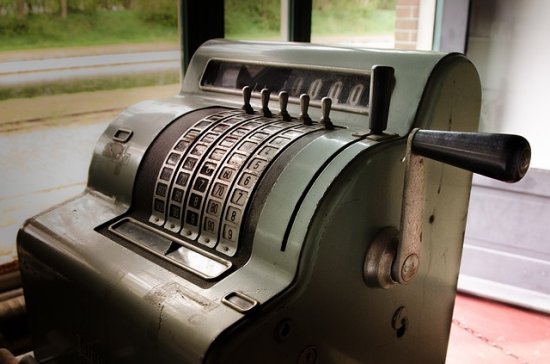
Do your bad money habits register?
Image Source: Pixabay
Some people seem to be born with an innate sense of money management. These were the kids who saved up most of their allowance, mowed lawns or babysat, and socked away all the money so they could buy their own car at 16. These are the same people who, as adults, have never paid a bill late, have immaculate credit and a robust retirement account. And then there's most everyone else. Unfortunately, for far too many consumers, financial common sense is not second nature, and it's not something that's taught well in schools.Lack of financial education can result in bad habits that can wreck your finances for years to come. And to make things worse, one bad habit can often feed another and trap you in a cycle of debt accumulation that can be hard to dig out from under – but we can help. Today we look at seven of the most common money mistakes we see among our clients and how you can avoid – and even fix – these issues to get your money matters back on track.
#1 Don't touch your retirement (and be sure to invest)
Most consumers do not save enough for their retirement and underestimate the amount of money they will need to live on in their golden years. Plus, as Americans, we're staying in debt longer as we age which means our retirement funds aren't just used for living expenses, but to service debt and pay interest. Taking funds out of your retirement account to pay off debt is not wise – don't do it. Also, try not to borrow against those funds. And be sure to invest in your 401(k) with every payroll, at least to the extent that you max out your employer match, but hopefully much more!
#2 Don't carry balances on your credit cards
Ideally, you should never swipe your credit card for something you couldn't afford to buy with cash. If you buy an item with a credit card and don't pay it off in full that month, it's like you're taking out a high-interest loan. That's not a wise way to buy a TV, outfit, vacation, or computer that you want - you end up paying far more in the long run. Better to save up the money and buy when you can afford it. Using credit cards minimally then paying off in full each month will result in the best outcome for your credit score. Credit spending is one of the worst habits you can engage in and can wreck your finances.
#3 Don't take cash advances off your credit cards
Ordinary interest on credit cards is bad enough, but when you take a cash advance, your card issuer will usually charge a much higher interest rate on that amount. Card issuers will also often send “convenience” checks which you can write out just a like bank check. You can write it to yourself and deposit to your own bank account or write it to someone else, like to cover a bill, or to pay off a personal debt, or really for any reason. Convenience checks are also a cash advance and will result in higher interest charges. Shred these checks so you won't be tempted and never take a cash advance.
#4 Don't avoid filing your taxes
Even if you can't pay your income taxes, you should always file your tax return. That may sound crazy like you're just asking Uncle Sam to come after you, but it's the best approach. Why? If you don't file a tax return, the IRS files one for you, and they don't do a great job of it. They look at your income that's reported to them and give you just the standard deduction – that's it. This is called a replacement return and will result in the highest possible income tax assessment for your income scenario. Always file your returns even if you can't pay so that the statute of limitations on collections starts tolling.
#5 Don't ignore creditors
but don't believe what they say
You should never ignore calls or letters from a creditor or debt collector if you're behind on your debt. However, you have to take things they say with a grain of salt. You should educate yourself on what creditors and debt collectors can and cannot do. Check out the Consumer Financial Protection Bureau's website at CFPB.gov and browse for information on debt collection. If you get served with notice of a lawsuit for a past-due debt, that can't be ignored, and you must act. If a collector tells you if you don't pay, they'll have you arrested, that's a lie and can be disregarded. But you have to know the difference.
If you've made money mistakes to the extent that you're deep in debt and can't pay your bills, we can help. You don't have to live paycheck to paycheck, stressed out and feeling hopeless. Contact the Law Offices of John T. Orcutt to talk to a reputable North Carolina bankruptcy attorney today. Call (800) 899-1414 for a free consultation in Raleigh, Greensboro, Fayetteville, Wilson, Durham or Garner.
Please read the original post on our affiliate site, BillsBills.com
